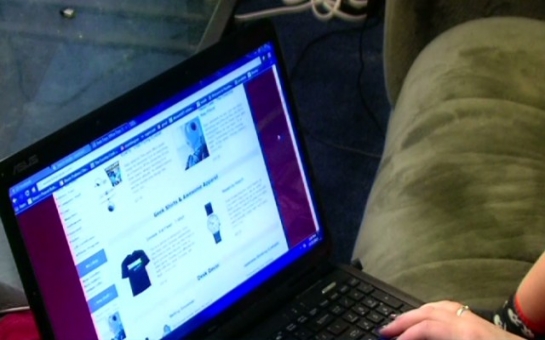Follow us !
Couple fined for negative online review
World
10:45 | 04.12.2013

Couple fined for negative online review
A Utah couple is facing a $3,500 fine and a damaged credit score for doing what many people do after a bad purchasing experience: posting an online review.Their story -- first reported by CNN's affiliate in Salt Lake City KUTV -- started in 2008 when John Palmer bought his wife Christmas gifts off KlearGear.com. The items never arrived and the Palmers said the transaction was automatically canceled."After 30 days, PayPal said 'Hey, there's no activity here' and they turned around and gave the money back into my husband's account and effectively canceled the sale," Jen Palmer told CNN.After repeated calls to KlearGear.com to find out what happened, Jen Palmer posted a review of the company on ripoffreport.com saying in part,"There is absolutely no way to get in touch with a physical human being. No extensions work."More than three years later, the Palmers received an e-mail appearing to be from KlearGear.com stating that they would be fined $3,500 if the negative review posted on ripoffreport.com wasn't taken down within 72 hours."We were shocked that someone would attempt to do this because it's ridiculous that anyone would turn around and try to extort us like this," Jen Palmer said.The e-mail cited an obscure non-disparagement clause in the terms of use contract that states: "Your acceptance of this sales contract prohibits you from taking any action that negatively impacts KlearGear.com." The Palmers say this clause was added after they purchased the items, citing their 2008 customer agreement which they found.Legal experts warn that more and more companies are adding this type of language in the fine print as protection."The First Amendment does not protect certain kinds of free speech and you can sign a contract giving away your free speech," according to CNN legal analyst Paul Callan.He said he believes KlearGear.com's terms of use contract is not fair and would likely be thrown out by the court.The Palmers tried to take down their online review, but couldn't because ripoffreport.com requires the company to enter into arbitration to have a post removed, which would cost $2,000, and KlearGear.com refused.So KlearGear.com reported the Palmers' $3,500 unpaid fine to a collections company. After that, Jen Palmer said the couple had trouble getting approved for financing because their credit score took a huge hit.CNN e-mailed KlearGear.com and tried multiple phone numbers listed on its website. No one responded back and all the numbers were disconnected. KlearGear.com did respond via e-mail to KUTV, defending its actions, referring to its "terms of sale," and saying its request that Jen Palmer remove her post was not blackmail but a "diligent effort to help them avoid (the fine)."The Better Business Bureau is investigating KlearGear.com separately and has put the company on alert.KlearGear.com isn't the only company with a so-called non-disparagement clause in its customer agreement terms. CNN found a similar clause on a vacation rental company, shoredreams.net, that threatens a charge of up to $10,000 for online reviews containing "unreasonable negative sentiment." After a CNN report about the clause aired, the company removed it from its terms and conditions, citing customer feedback.Since the Palmers' story first surfaced, a wave of outrage has made its way across the Internet against KlearGear.com and as a result, the company has since protected its Twitter account and shut down its Facebook page, according to Techcrunch.com.The Palmers say they're taking their fight all the way to court."We don't want them to get away with this," Jen Palmer said. "We are apparently not the only ones that they have done this to, but we are the only ones who are fighting back. And we're not giving up."During this busy online shopping season, retail analysts suggest you take steps to protect yourself by taking the time to read the fine print and ensure a company is legitimate before buying a product online. And if you do write a negative review, make sure it's accurate because you could be sued for libel even if the company doesn't have a non-disparagement clause, according to CNN legal expert Paul Callan.(CNN)ANN.Az










